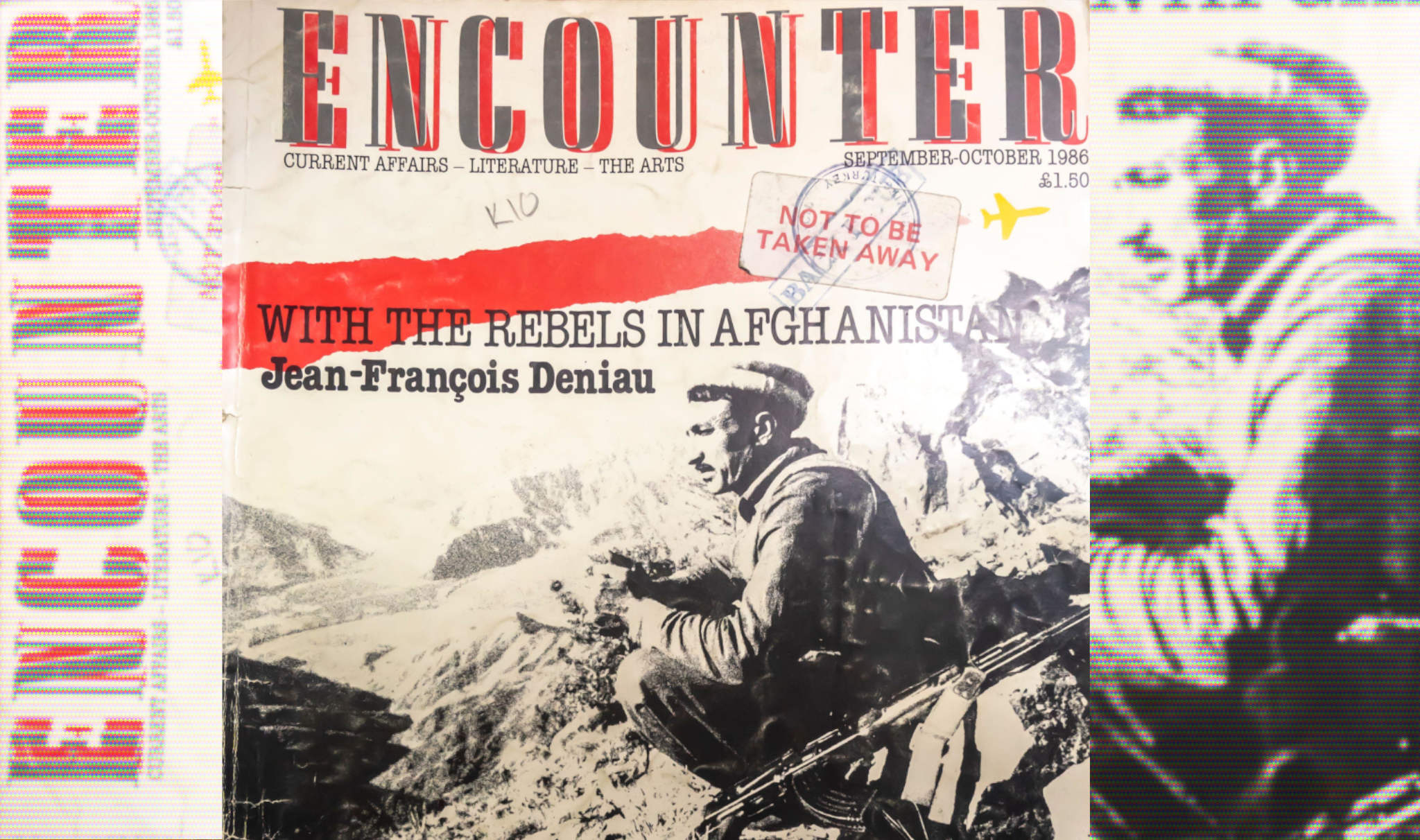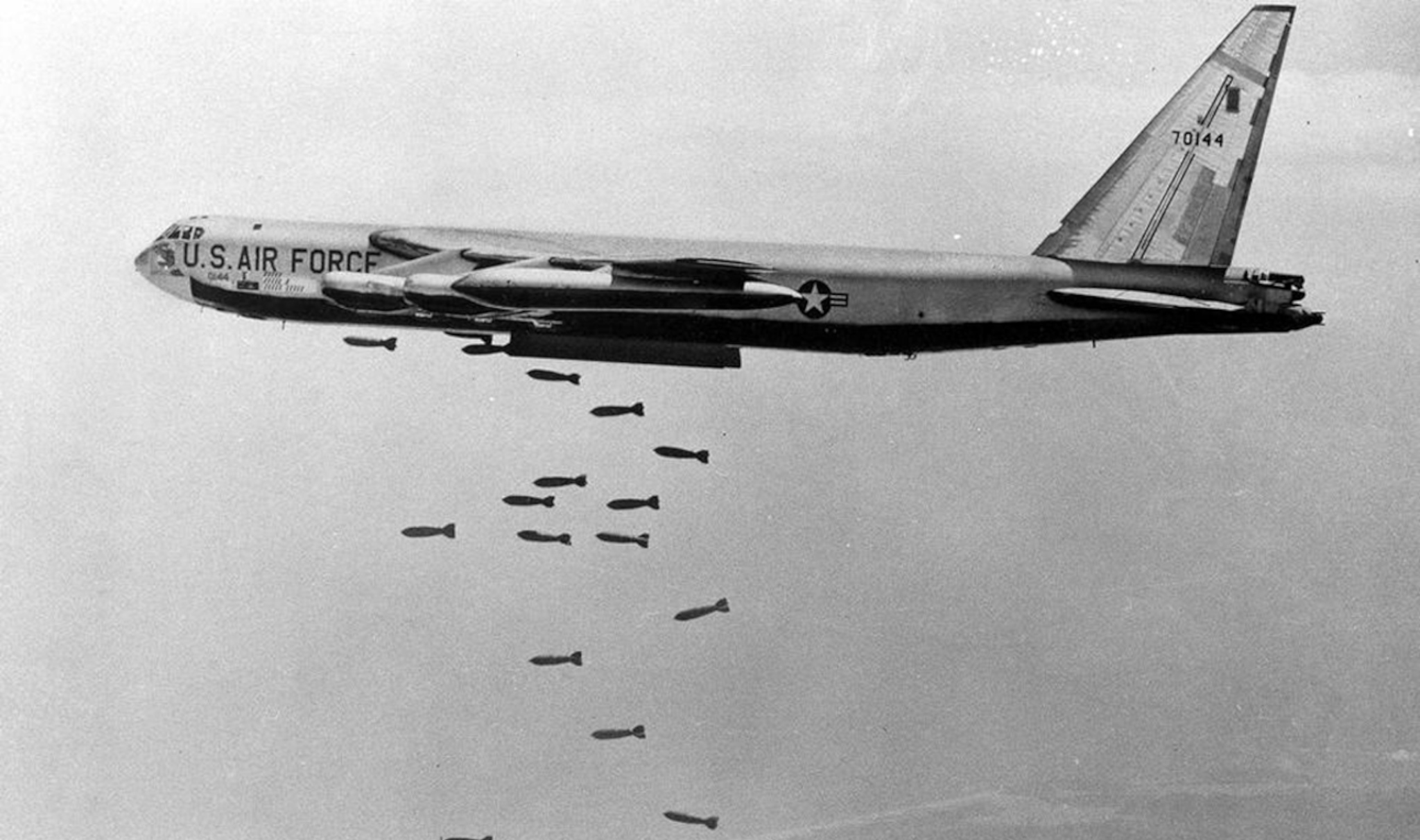Encounter was an intellectual and cultural magazine set up during the Cold War with secret funds from the US and British intelligence agencies.
The magazine’s purpose was to cultivate a compatible, non-communist left, while creating content that was generally supportive of Washington’s geopolitical interests.
Encounter’s intelligence links eventually became publicly known. In 1963, however, a British journalist almost blew the lid off its secret sources of funding.
Recently declassified files show how the Foreign Office mobilised to kill the story.
‘Left-of-centre publication’
In 1951, a group of US and British intelligence officials met secretly in Whitehall to discuss plans for an “Anglo-American left-of-centre publication”.
Amid the intensification of the Cold War, the CIA and MI6 wanted to nudge the Western intelligentsia away from neutralism and towards anti-communism.
The responsibility for devising the “operations and procedures” of the publication was handed to Monty Woodhouse, an MI6 officer who also worked with Britain’s secret Cold War propaganda unit, the Information Research Department (IRD).
“The CIA and MI6 wanted to nudge the Western intelligentsia away from neutralism and towards anti-communism”
On the US side, Woodhouse was assisted by Michael Josselson and Lawrence de Neufville, two CIA officers acting under cover of the Congress for Cultural Freedom (CCF).
The fruit of the three men’s endeavour was Encounter magazine, an intellectual and cultural journal first published in 1953, with covert funding from the CIA and UK Foreign Office.
“The deal was this”, wrote historian Frances Stonor Saunders: “Encounter’s editors were free to publish anything they wanted, as long as this did not adversely affect American interests”.
To be sure, this did not mean that Encounter was obliged “to support every aspect of official American policy” but the content would be “monitored, guided and, in extremis, controlled”.
Acceptable in left-wing circles
By 1963, the CIA and the Foreign Office viewed Encounter as an important tool in the cultural Cold War.
The fact that Encounter was “left-wingish and critical of many forms of authority”, noted Foreign Office official Leslie Glass, “makes its basic line more acceptable in [left-wing] circles we find it difficult to reach”.
Kit Barclay, the head of the IRD, added that: “The Americans and ourselves are able to suggest themes for insertion” in Encounter, “but we are not in a position to exercise day-to-day editorial control”.
He continued: “The general editorial line of Encounter is intended to be anti-Communist, but with a slightly left-wing tendency”. This was “in fact the pattern that is normally adopted for secretly subsidised newspapers or magazines. On the whole this has worked well in the case of Encounter”.
For his part, Josselson described the magazine as “our greatest asset”.
‘These so and so’s got a subsidy from us’
The recently declassified files show how the UK government secretly worked to cover up its financial links with Encounter magazine.
On 27 October 1963, Donald McLachlan, the editor of the Sunday Telegraph, published a story in his paper which correctly asserted that Encounter was being covertly funded by the Foreign Office.
The article declared: “Rarely does a magazine of ideas survive in this country to celebrate its tenth birth, as Encounter does this week. But some credit goes to… the Foreign Office, whose regular contribution towards the cost of fighting the cultural Cold War has… been kept a close secret”.
McLachlan was not in the habit of embarrassing the UK government with such sensitive information. He had been a member of the British army’s intelligence corps, and had sat on the UK government’s Information Coordination Executive (ICE) during the Suez Crisis.
However, the Foreign Office suspected that McLachlan had been meeting with Lord Privy Seal and future prime minister Edward Heath, who was becoming disgruntled with Encounter’s editorial line.
“And on top of it all these so and so’s got a subsidy from us”, Heath had supposedly told McLachlan.
A very British cover up
The publication of McLachlan’s article was met with panic on both sides of the Atlantic.
The CIA insisted that a “retraction” from the Sunday Telegraph was “essential” and the Foreign Office initiated plans for a cover up.
Sir Harold Caccia, its permanent under-secretary of state, proposed two courses of action.
The first option was to appeal privately to McLachlan to retract the story in the national interest, while telling him that it “was very nearly true”.
The second option was to explain the situation to Heath, ask him to tell McLachlan that he had been misinformed, and thus encourage the Sunday Telegraph to issue a retraction.
The IRD went with the second option, and managed to convince Heath to talk McLachlan down.
The CIA insisted that a “retraction” from the Sunday Telegraph was “essential”
In November 1963, the Sunday Telegraph duly published “a note saying that they withdraw any suggestion there might have been that the Foreign Office provided a subsidy and that the editorial independence of ‘Encounter’ is not in question”.
Meanwhile, the Foreign Office developed a deceptive line to take with the British news outlets enquiring about McLachlan’s original story.
“Unfortunately the Foreign Office funds do not stretch to subsidizing magazines such as Encounter”, the line went.
“If pressed, we can off the record point out that we do, however, buy numbers of magazines and newspapers of all shades of opinion (‘including your own’) for distribution through our information channels”.
The line was fundamentally misleading but had “the merit of being literally true since the IRD indirect subsidy to Encounter comes from the Secret vote”, it was noted, meaning the funds were not subject to parliamentary scrutiny and could be officially denied.
Moles in the media
Meanwhile, the IRD was also using a British journalist to secretly monitor what was going on behind the scenes at the Sunday Telegraph.
In late October 1963, Gordon Brook-Shepherd, the paper’s diplomatic correspondent, visited IRD official Hans Welser “to exonerate himself by making it clear that he had done what he could to restrain his editor [McLachlan]”.
Like McLachlan, Brook-Shepherd had previously worked for British intelligence. He added that he had put McLachlan under “strong pressure” to “tone down the leader” of his article.
Once the issue had been resolved, Brook-Shepherd continued to inform the IRD of McLachlan’s activities. McLachlan “was still on the scent and was now saying that a subsidy was paid to Encounter by the Foreign Office between 1953 and 1958”, the IRD was told.
If McLachlan returned to the attack, however, Welser was “fully confident that Brook-Shepherd will give me a tip-off should Mr McLachlan try and revert to the attack”.
Welser also recommended that the Foreign Office henceforth cut McLachlan from any sensitive governmental committees.
The Foreign Office succeeded in keeping Encounter’s covert sources of funding secret – albeit temporarily. In 1967, Encounter was outed as a recipient of CIA funding in a series of scandal-ridden articles published by Ramparts magazine.
The magazine continued in operation until 1991.
As Stephen Dorril noted in his book MI6: Fifty Years of Special Operations: “With a relatively small effort MI6 and the IRD were able to play a still largely unrecognised role in shaping European and, more particularly, British social democratic politics”.




